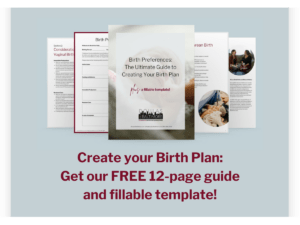5 Things You Should Know About Pregnancy and the COVID Vaccines
If you are pregnant right now or trying to become pregnant, you might be asking yourself, “Should I get a COVID-19 vaccine?” or “Should I get a booster?” Pregnant women are often excluded from drug and clinical trials because the potential risk is often too high, and this was this case with the COVID vaccine trials. According to an article published last year in the New York Times, “Scientists have accumulated a small but steadily growing body of evidence that the vaccines are safe and effective during pregnancy.” Boosters At Doulas of Baltimore, we encourage you to make decisions regarding your pregnancy and birth that make you feel comfortable and are grounded in the best information available. Here are 5 things you should know about pregnancy and the COVID vaccines (as of January 2022).
Pregnant women have an increased risk of severe disease after a COVID-19 infection.
In a study conducted in 2020, Centers for Disease Control (CDC) researchers analyzed data on 1.3 million women ages 15-44 who were diagnosed with SARS-CoV-2, the virus that causes COVID-19. They found that, “pregnant women were at increased risk for severe COVID-19–associated illness.” Pregnant women were more likely to be admitted to the ICU and receive invasive ventilation. Although they are not sure why this is, they speculate it could be because your body is working harder when you are pregnant– including “increased heart rate and oxygen consumption, decreased lung capacity, a shift away from cell-mediated immunity.” Another study found that pregnant women who contracted COVID were at an increased risk for preterm birth.
A COVID vaccine booster is safe for pregnant people.
If you received your first two shots of the vaccine before you were pregnant, you may now be wondering if you should be get a booster shot. Doctors are now recommending that people who are pregnant get the booster or third shot of a vaccine if they are eligible. Because pregnant people have an increased risk of severe disease if they get COVID, it is important to keep yourself as protected as possible. Dr. Brian Brimmage of the University of North Carolina health system says that,“Obviously, a pregnant woman getting seriously ill with COVID is dangerous for her and her baby.”
A recent study shows the Pfizer and Moderna vaccines produce an immune response in pregnant and lactating women.
Although pregnant women had this higher risk of severe disease, they were not included in any of the clinical trials for vaccines conducted last year. However, when the vaccine rollout started, some of the healthcare workers who received the vaccine were unknowingly pregnant at the time. Researchers could then track and monitor those women, and additional studies began specifically enrolling pregnant women.
The CDC now writes that you can receive the COVID-19 vaccine if you are pregnant. In a study of 103 women, researchers found that the Pfizer and Moderna vaccines gave women an immune response (meaning the vaccine did what it was supposed to) and antibodies to COVID-19 were present in breast milk and cord blood.
When administered during pregnancy, the Pfizer and Moderna vaccines do not damage the placenta.
An early conspiracy theory regarding the COVID vaccines and pregnancy involved the idea that it might damage the placenta. A study just published in Obstetrics and Gynecology found that COVID “vaccination was not associated with placental histopathologic lesions,” meaning it did not damage the placenta.
STAT news now reports that, “Three of the leading professional organizations focused on pregnancy and fertility — the American Society for Reproductive Medicine, the American College of Obstetricians and Gynecologists, and the Society for Maternal Fetal Medicine — all recommend that pregnant people get vaccinated, as well as those considering pregnancy.”
Protect yourself against COVID-19.
If you don’t want to get the vaccine right now, the CDC recommends taking steps to reduce your risk of contracting COVID. This includes all the key recommendations from the last year: wearing a mask, avoiding crowds, not spending time indoors with poor ventilation, washing your hands, and keeping physical distance.
At Doulas of Baltimore, we support the decisions that you make during pregnancy, without judgement. This blog post is not intended as medical advice, but provides some information about the latest research and commentary from the government and professional organizations regarding the efficacy and safety of COVID vaccines on pregnant women. As with all of your pregnancy and birth decisions, you should consult with your doctor before making any decisions about receiving a COVID-19 vaccine.








